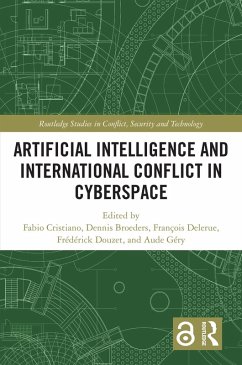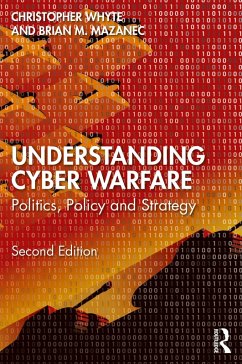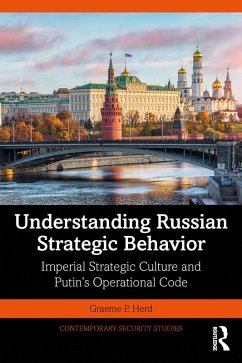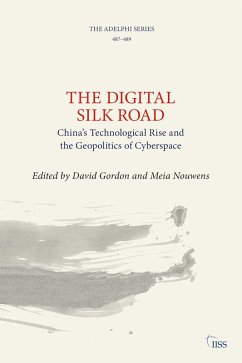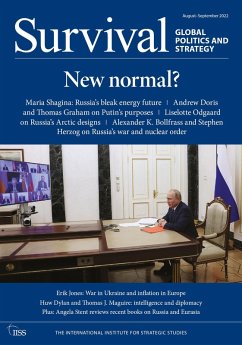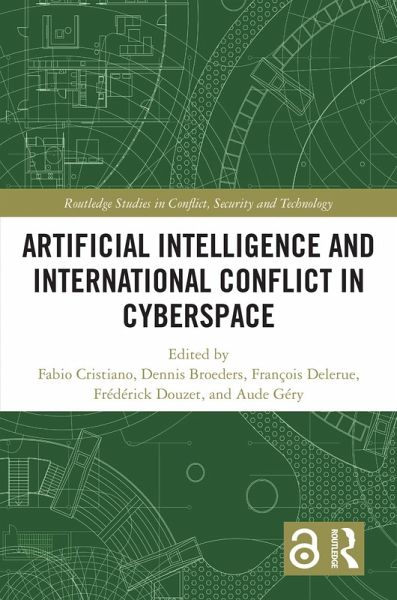
Artificial Intelligence and International Conflict in Cyberspace (eBook, PDF)
Versandkostenfrei!
Sofort per Download lieferbar
0,00 €
inkl. MwSt.
Weitere Ausgaben:

PAYBACK Punkte
0 °P sammeln!
This edited volume explores how artificial intelligence (AI) is transforming international conflict in cyberspace.Over the past three decades, cyberspace developed into a crucial frontier and issue of international conflict. However, scholarly work on the relationship between AI and conflict in cyberspace has been produced along somewhat rigid disciplinary boundaries and an even more rigid sociotechnical divide - wherein technical and social scholarship are seldomly brought into a conversation. This is the first volume to address these themes through a comprehensive and cross-disciplinary appr...
This edited volume explores how artificial intelligence (AI) is transforming international conflict in cyberspace.
Over the past three decades, cyberspace developed into a crucial frontier and issue of international conflict. However, scholarly work on the relationship between AI and conflict in cyberspace has been produced along somewhat rigid disciplinary boundaries and an even more rigid sociotechnical divide - wherein technical and social scholarship are seldomly brought into a conversation. This is the first volume to address these themes through a comprehensive and cross-disciplinary approach. With the intent of exploring the question 'what is at stake with the use of automation in international conflict in cyberspace through AI?', the chapters in the volume focus on three broad themes, namely: (1) technical and operational, (2) strategic and geopolitical and (3) normative and legal. These also constitute the three parts in which the chapters of this volume are organised, although these thematic sections should not be considered as an analytical or a disciplinary demarcation.
This book will be of much interest to students of cyber-conflict, AI, security studies and International Relations.
The Open Access version of this book is available for free in PDF format as Open Access from the individual product page at www.routledge.com. It has been made available under a Creative Commons Attribution-Non Commercial-No Derivatives 4.0 license.
Over the past three decades, cyberspace developed into a crucial frontier and issue of international conflict. However, scholarly work on the relationship between AI and conflict in cyberspace has been produced along somewhat rigid disciplinary boundaries and an even more rigid sociotechnical divide - wherein technical and social scholarship are seldomly brought into a conversation. This is the first volume to address these themes through a comprehensive and cross-disciplinary approach. With the intent of exploring the question 'what is at stake with the use of automation in international conflict in cyberspace through AI?', the chapters in the volume focus on three broad themes, namely: (1) technical and operational, (2) strategic and geopolitical and (3) normative and legal. These also constitute the three parts in which the chapters of this volume are organised, although these thematic sections should not be considered as an analytical or a disciplinary demarcation.
This book will be of much interest to students of cyber-conflict, AI, security studies and International Relations.
The Open Access version of this book is available for free in PDF format as Open Access from the individual product page at www.routledge.com. It has been made available under a Creative Commons Attribution-Non Commercial-No Derivatives 4.0 license.
Dieser Download kann aus rechtlichen Gründen nur mit Rechnungsadresse in A, B, BG, CY, CZ, D, DK, EW, E, FIN, F, GR, HR, H, IRL, I, LT, L, LR, M, NL, PL, P, R, S, SLO, SK ausgeliefert werden.




